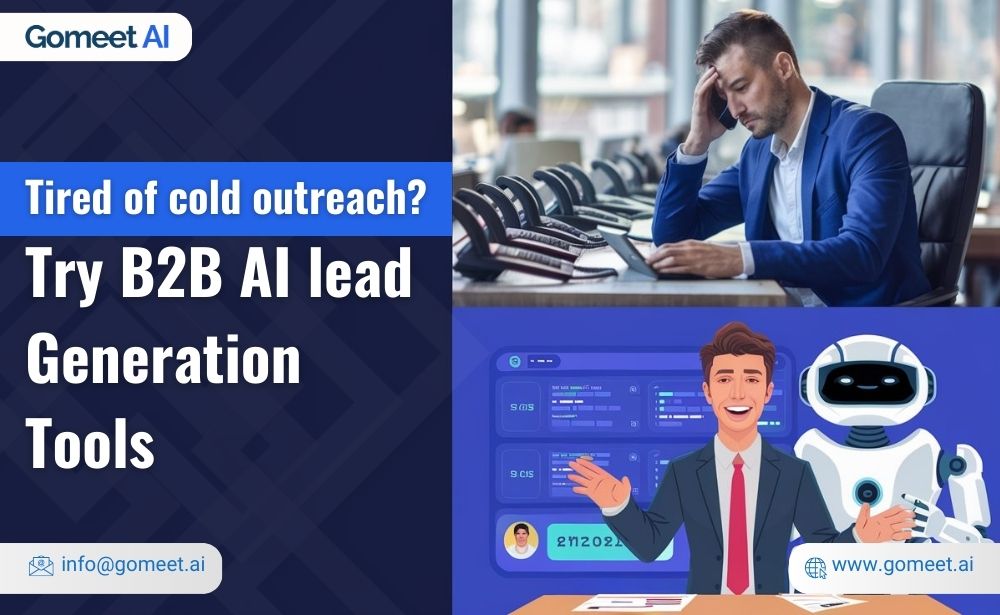The days of cold calling, where sales teams tirelessly dialed numbers hoping to land a sale, are slowly fading into the past. AI-powered lead generation is now reshaping the way businesses find, nurture, and convert leads, making the traditional approach of cold outreach feel outdated. In this rapidly evolving world, where efficiency and personalization are key, businesses are turning to lead-generation AI tools to streamline B2B sales processes, engage prospects meaningfully, and improve their overall conversion rates.
Let’s dive into how this powerful technology has changed what was once a labor-intensive effort into a smart, data-driven approach, turning leads into hot prospects, and helping businesses achieve remarkable results.
1. The Traditional Cold Call: A History of Inefficiency
Before the rise of AI, cold calling was one of the most common methods for generating sales leads. It was a tedious numbers game—sales teams would dial as many prospects as possible, hoping that a few would show interest.
But this method had its challenges:
- Low Success Rates: Studies show that only 1-2% of cold calls result in a meeting. This means the vast majority of effort is wasted.
- Time-Consuming: Cold calling requires significant time and resources, leaving sales teams exhausted.
- Lack of Personalization: Cold calls were often impersonal, leading to disinterested prospects and missed opportunities.
As businesses grew more competitive and technology advanced, it became clear that there had to be a better way to generate leads. That’s when AI-powered lead generation began to emerge as a game changer.
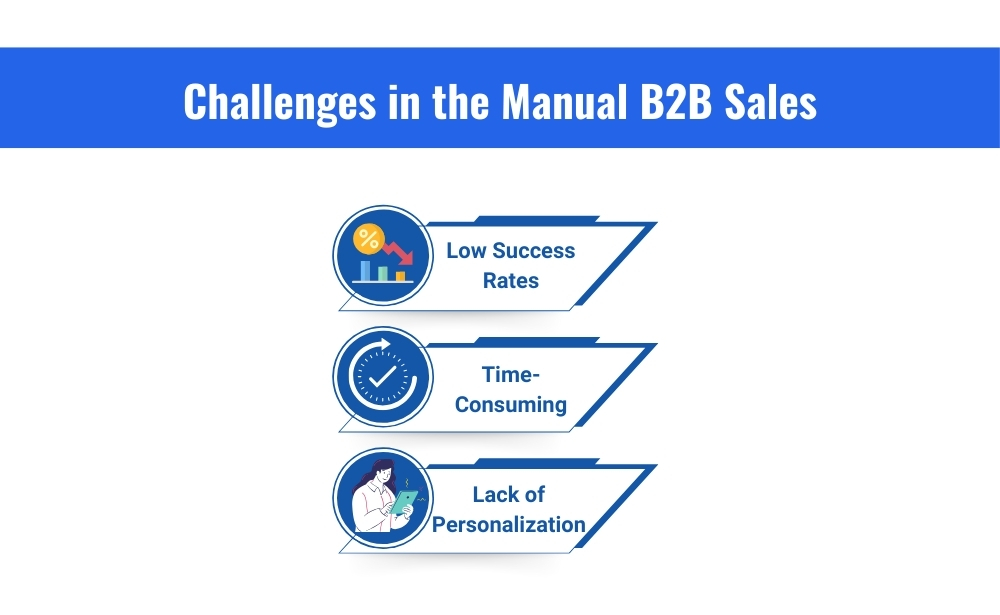
2. AI-Powered Lead Generation: A Smarter Approach
AI-powered lead generation redefines how businesses identify and engage prospects. Instead of random outreach, lead generation AI tools leverage data analytics and machine learning to help businesses focus on prospects who are most likely to convert.
Some key features of this advanced approach include:
- Data Analysis: AI tools process vast amounts of customer data, identifying patterns that signal interest or readiness to buy.
- Behavior Prediction: By analyzing a lead’s behaviors (such as website visits, downloads, or email interactions), AI predicts which leads are worth pursuing.
- Automated Qualification: AI leads are qualified automatically based on specific criteria, freeing up sales teams to focus on closing deals rather than chasing dead ends.
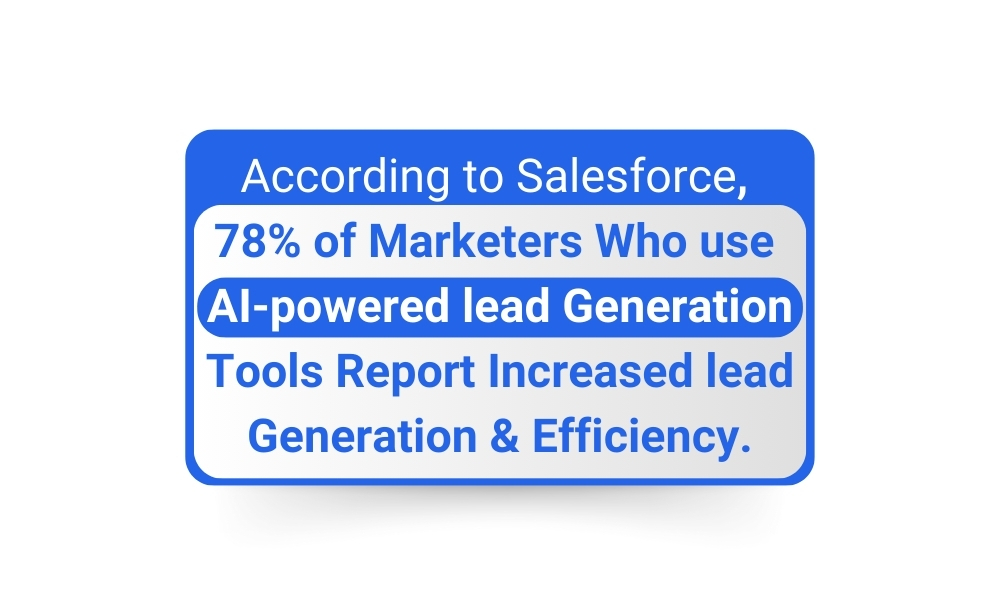
By quickly sorting through customer data and learning from past interactions, AI continues to improve the accuracy and efficiency of lead generation over time.
3. From Cold to Warm: Turning Prospects into Hot Leads
How exactly does AI turn cold prospects into warm, qualified leads? The answer lies in the precision with which AI lead generation tools can optimize every stage of the sales funnel.
Here’s how AI is warming up leads:
Automated Outreach: Platforms like GoMeet AI not only help businesses identify the best leads but also automate follow-ups, ensuring that the right message reaches the right prospect at the perfect time.
Lead Scoring: AI leads are given scores based on factors such as previous behavior, engagement, and interaction with your brand. This prioritization helps sales teams focus their efforts on high-potential prospects.
Personalization: Personalization is no longer a luxury; it’s a necessity. According to McKinsey, AI enables businesses to deliver personalized content and messaging at scale, boosting engagement by as much as 50%.
4. Lead Generation AI Tools
The rise of AI-powered lead generation wouldn’t be possible without the sophisticated tools driving the process. Lead generation AI tools use machine learning and behavioral analytics to take the guesswork out of lead generation.
Here’s how these tools work:
- Behavioral Tracking: AI tracks online behaviors, such as website clicks and downloads, to understand the intent behind a prospect’s actions.
- Sentiment Analysis: AI can gauge the emotional tone behind customer interactions, giving sales teams deeper insights into how to approach each lead.
- Predictive Modeling: AI tools predict future behavior based on past interactions, allowing businesses to anticipate needs and create tailored outreach strategies.
5. Key Benefits of AI-Powered Lead Generation
Embracing AI-powered lead generation has numerous benefits that go far beyond simply increasing efficiency. These include:
- Increased Efficiency: According to Harvard Business Review, AI tools can save up to 20% of the time spent on manual lead qualification. Sales teams can now dedicate more time to nurturing leads and closing deals.
- Improved Lead Accuracy: AI’s data-driven approach ensures that businesses focus on AI leads with the highest potential for conversion. In fact, 59% of sales professionals using AI report significant improvements in lead quality.
- Enhanced Personalization: AI allows businesses to tailor their outreach to individual prospects, increasing the chances of engagement and conversion. Customized messages delivered at the right time are key to building meaningful connections with prospects.
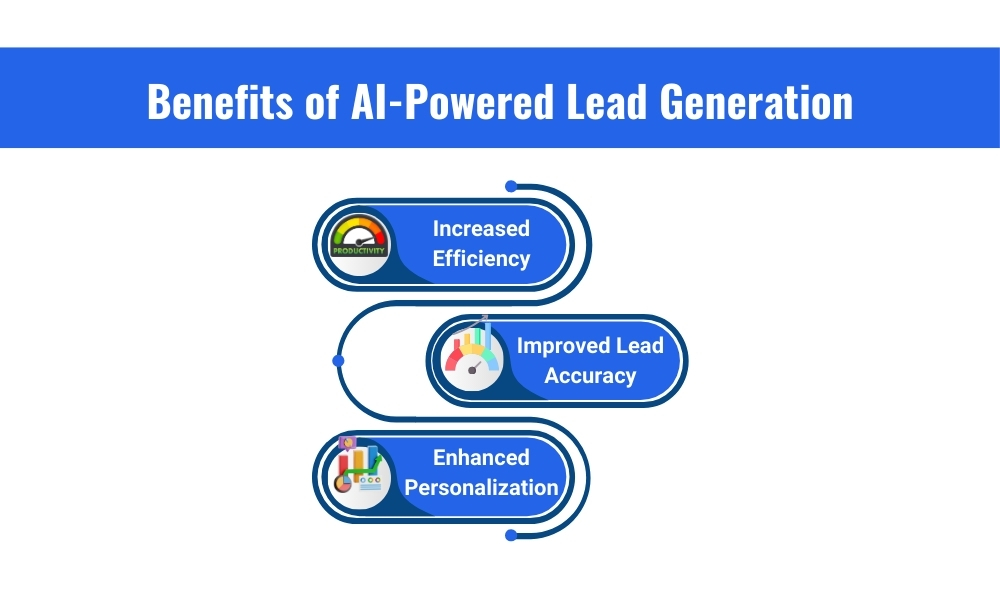
6. Success Stories: AI in Action
The impact of AI-powered lead generation is already being felt across various industries. One notable success story involves a B2B SaaS company that implemented AI-powered lead generation tools to enhance its sales process.
By adopting AI tools for lead scoring and automated outreach, the company:
- Increased their lead-to-sale conversion rate by 36% in just six months.
- Shortened their overall sales cycle, allowing the sales team to close deals faster.
- Improved lead quality, reducing the time spent on unqualified leads.
These results highlight the transformative power of AI lead generation in real-world scenarios, showing how businesses can thrive by adopting modern technology.
7. Overcoming Common AI Challenges in Lead Generation
Despite its benefits, there are still some misconceptions and challenges surrounding the use of AI in lead generation. Some businesses fear that relying too heavily on AI may remove the personal touch from sales interactions. However, lead generation AI tools actually enhance personalization by providing sales teams with deeper insights and more relevant data.
To maximize AI’s potential, businesses should:
- 1Maintain Human Oversight: While AI can automate lead generation and outreach, human oversight is crucial to ensure personalized customer interactions.
- Balance Automation with Human Touch: AI helps streamline processes, but sales teams must still focus on building genuine relationships with prospects to close deals effectively.
8. The Future of AI-Powered Lead Generation
The future of lead generation lies in AI’s continuous evolution. As AI becomes more advanced, businesses can expect deeper personalization, more accurate predictive analytics, and the ability to create seamless, AI-driven customer journeys.
Some trends to watch include:
- Predictive Analytics: AI will become even better at predicting customer behavior, allowing businesses to be more proactive in their sales strategies.
- AI-Powered Customer Journeys: From awareness to conversion, AI will guide prospects through the entire sales funnel, optimizing every touchpoint.
- Deeper Insights: The future of AI lies in its ability to deliver increasingly nuanced insights into customer preferences and behaviors, helping businesses make smarter decisions.
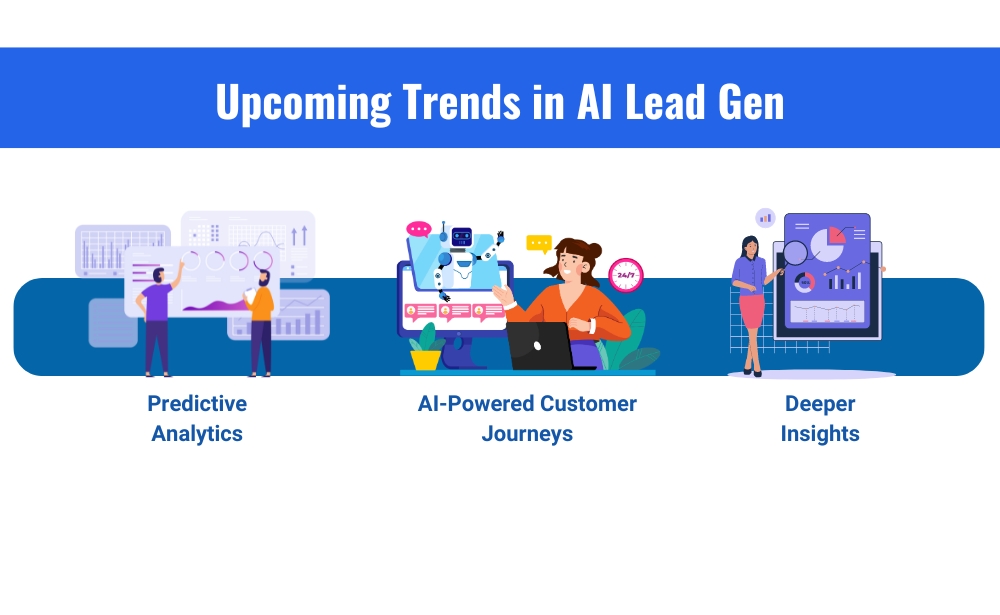
Conclusion
The transition from a manual sales process to an AI-powered lead generation technique has revolutionized the B2B sales landscape. By harnessing the power of data-driven insights, automation, and personalization, businesses can now focus on turning boring leads into warm, qualified AI leads.
Tools like Gomeet AI are leading the charge, helping businesses streamline their B2B lead generation processes and improve overall efficiency. Embracing lead-generation AI tools isn’t just a trend; it’s essential for businesses looking to stay competitive in the market.
By investing in AI, businesses can prepare for the future of sales—one where technology and human interaction work together seamlessly to drive growth and success.

